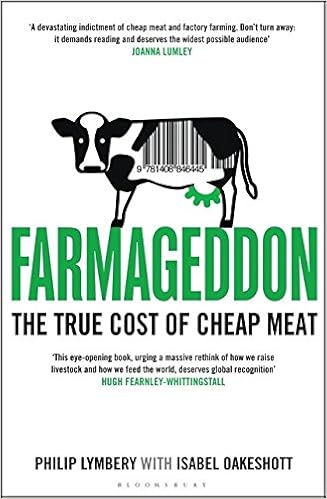Farmageddon
[2018-02-03 Sat]

I have just finished reading the book Farmageddon by Philip Lymbery and Isabel Oakeshott. It is the most important book I have read in a number of years. It is a dazzling journalistic expose of how industrial-scale agriculture and factory farming has systematically raped the world's farmlands in the last half century.
The book's main theses are:
- pasture-reared livestock are a vastly more efficient use of global food resources than factory-farmed animals: pasture-reared animals consume mostly grass and their excrement fertilises the soil; by contrast, factory-farmed animals eat food that could otherwise be fed to humans (grain, soy and fish). Moreover, their waste is difficult to dispose of and, when dumped on arable land en masse as fertiliser, leaks into water systems and causes eutrophism and even health problems in humans.
- overcrowded conditions for animals risk outbreaks of contagious disease; to combat this, it is necessary to overuse antibiotics, with predictable consequences. Even if the farmed animals are treated, diseases and parasites can escape into and decimate wild animal populations (the particular example chosen to illustrate this was fish-farming of salmon).
- all of this is driven by overconsumption and waste of cheap meat and fish products. One claim I found particularly staggering was that the equivalent of 11.5 billion chickens each year are wasted worldwide.
- monoculture and use of chemical weed control, while yielding bigger and more consistent yields, are having a terrifying effect on wildlife, to the extent where (coupled with the effect of climate change) we may be experiencing a mass extinction event, primarily caused by human activity.